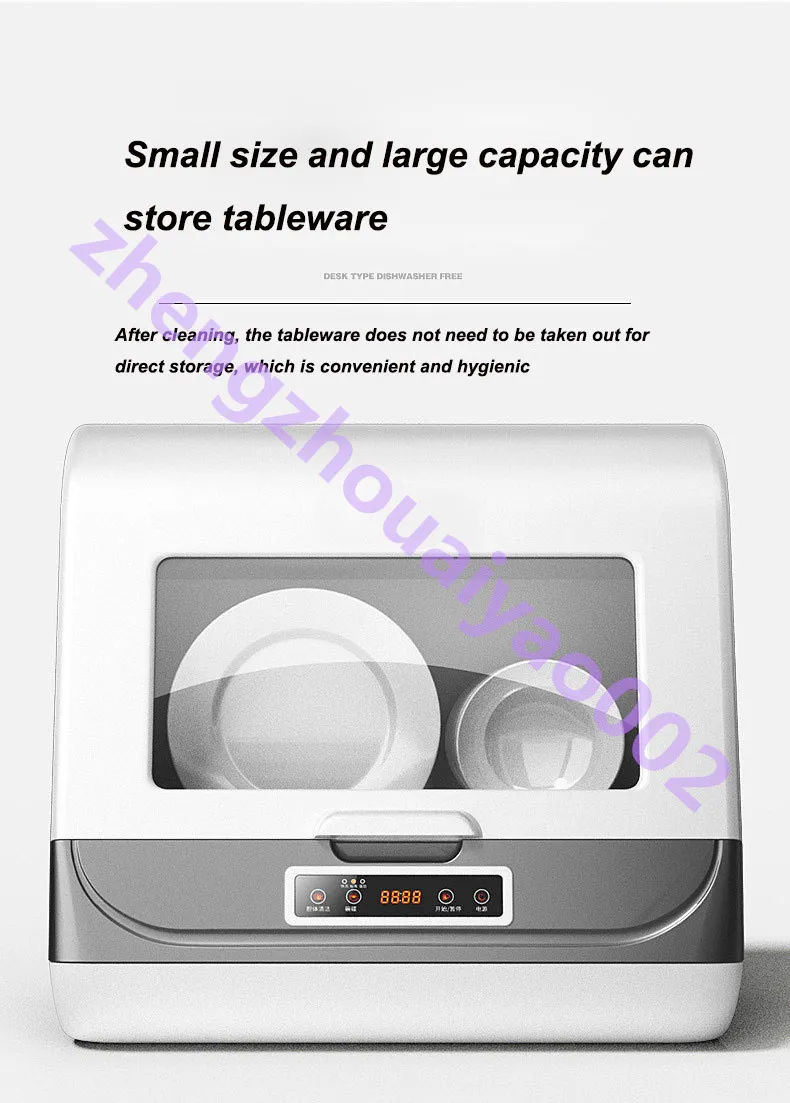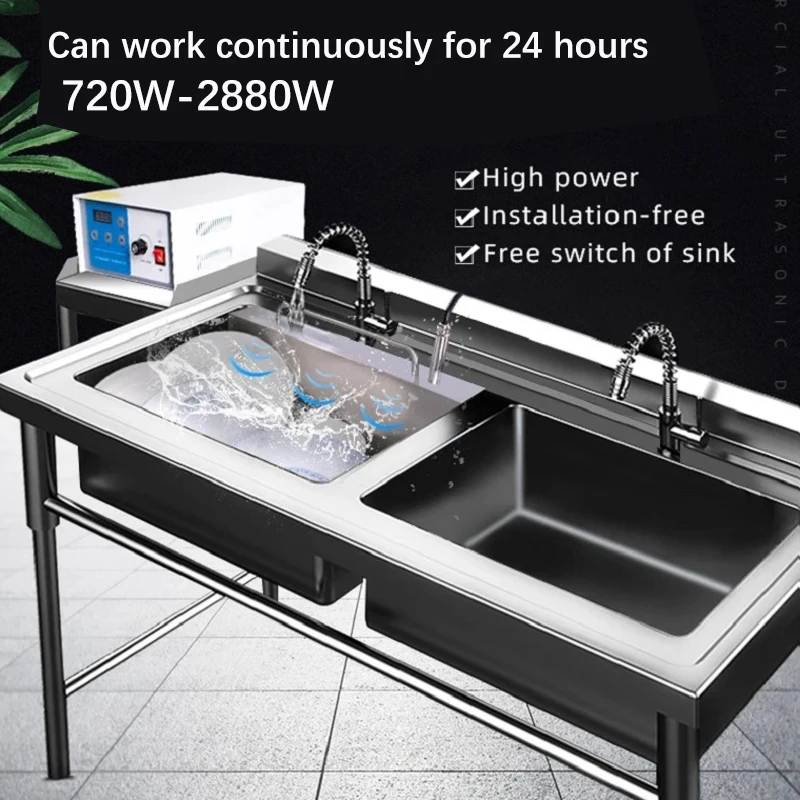Have you ever found yourself puzzled over the voltage requirements of dishwashers? If you’re shopping for a new one or just curious about the appliance in your kitchen, you might wonder if dishwashers are universally 110V or 220V.
Understanding this can save you from potential headaches and costly mistakes. Imagine plugging in your brand new dishwasher only to find out that it doesn’t match the electrical setup in your home. Frustrating, right? Knowing whether your dishwasher needs a 110V or 220V outlet is crucial for seamless installation and efficient operation.
We’ll delve into the details, clearing up any confusion and ensuring you make the right choice for your home. So, are all dishwashers 110V or 220V? Let’s uncover the truth and guide you through the decision-making process!

Credit: ie.dhgate.com
Dishwasher Voltage Basics
Understanding the voltage requirements for your dishwasher is crucial. It ensures that you not only get the best performance but also prevent any electrical mishaps. Whether you’re a seasoned home appliance expert or a novice, knowing the basics of dishwasher voltage can save you time and money.
Understanding Voltage Ratings
Voltage ratings can seem daunting, but they’re simpler than you might think. Dishwashers typically run on either 110V or 220V. These numbers represent the amount of electrical power needed for the dishwasher to function effectively.
A 110V dishwasher is common in homes and is usually compatible with most residential electrical systems. On the other hand, 220V dishwashers are often used in larger settings or where higher power is necessary.
Have you ever plugged in a device only to find it doesn’t work? It might have been a voltage mismatch. Understanding these ratings helps you avoid such frustrations.
Common Voltage Standards
Across the globe, voltage standards differ. In the United States, 110V is the norm for household appliances. It’s generally sufficient for most dishwashers, ensuring they perform efficiently.
In other countries, like many in Europe, 220V is more common. If you’re importing or traveling, checking the voltage compatibility is essential to prevent damage.
Imagine buying a dishwasher overseas, only to find out it doesn’t work in your kitchen. That’s a costly mistake you can easily avoid by checking voltage standards.
So, how do you determine the right voltage for your needs? Consider the size of your household and the frequency of use. A smaller family might opt for 110V, while larger families or commercial settings could benefit from the power of 220V.
As you examine your kitchen appliances, ask yourself: Is my current setup compatible with the dishwasher I want? Would a voltage change improve efficiency?
Being proactive about voltage can save you from potential headaches. It’s all about making informed choices for your home.

Credit: millcoffee.com
110v Dishwashers
110V dishwashers are perfect for homes and apartments. They offer convenience and efficiency without the need for special wiring. These dishwashers plug into standard outlets. This makes installation simple and hassle-free.
Advantages Of 110v Models
110V dishwashers are energy-efficient. They consume less power compared to 220V units. This can reduce energy bills over time. Their smaller size is ideal for compact spaces. They fit neatly under counters or in small kitchens. 110V models are often more affordable. This makes them accessible for budget-conscious buyers.
Common Uses For 110v Dishwashers
These dishwashers are popular in apartments and tiny homes. They suit places with limited space. Vacation rentals often prefer 110V dishwashers. They provide ease of use for guests. Small offices use them for convenience. They are perfect for light cleaning needs.
220v Dishwashers
Understanding the voltage options for dishwashers is essential. Some dishwashers operate on 110V, while others use 220V. Choose the right voltage for your home’s electrical system.
When choosing a dishwasher, you might wonder about the voltage—110V or 220V? While 110V models are common in many households, 220V dishwashers offer unique advantages that may surprise you. These models are especially prevalent in regions where 220V power is the norm. But even in areas with 110V systems, some opt for 220V dishwashers for specific reasons.Benefits Of 220v Models
220V dishwashers often have more power. This can lead to faster heating of water, which means quicker cleaning cycles. Imagine having your dishes sparkling clean in less time—perfect for those busy days when every minute counts.They are also energy efficient. Using higher voltage can sometimes mean better energy use, reducing your electricity bills over time. Isn’t it satisfying to know that you can save money while being environmentally friendly?Furthermore, 220V dishwashers might come with advanced features. With the extra power, manufacturers often include more sophisticated functionalities that enhance performance and convenience. Consider the joy of using high-tech options that cater to your specific needs.Typical Applications For 220v Dishwashers
In commercial settings, such as restaurants and cafes, 220V dishwashers are the go-to choice. They handle large volumes of dishes with speed and efficiency. If you’ve ever worked in a bustling kitchen, you know the value of having a reliable, quick dishwasher.For homes, 220V models are ideal for larger families. With more dishes to clean, the faster and more powerful cycles are a definite advantage. Have you ever thrown a big family gathering and worried about the pile of dishes afterward? A 220V dishwasher can ease that worry.Renovating your kitchen might also be a good time to consider 220V options. If you’re already upgrading your electrical system, why not explore a dishwasher that can offer more power and features? It’s a small change that can make a big difference in your daily routine.When you weigh these aspects, does a 220V dishwasher seem more appealing for your specific needs? Whether for speed, efficiency, or advanced features, these models offer compelling reasons to consider them.
Credit: www.aliexpress.com
Choosing The Right Voltage
Choosing the right voltage for your dishwasher can be a bit confusing. You might wonder whether a 110V or a 220V appliance is better for your home. Understanding the voltage differences is crucial for efficient use and safety. Let’s break down the factors to consider when making this decision.
Factors To Consider
Start by assessing your home’s electrical infrastructure. Most homes in North America use 110V power outlets, while many European homes are wired for 220V. Knowing your current setup helps in choosing the right dishwasher.
Consider your household’s energy consumption. A 220V dishwasher may offer more power and efficiency, especially for larger families or frequent use. However, if your usage is moderate, a 110V model might be more cost-effective.
Think about the future. If you plan on upgrading other appliances, a 220V system might be beneficial. It supports high-power devices better, giving you flexibility in your choices.
Installation Requirements
Installing a 220V dishwasher requires specific electrical work. You might need to hire a professional to ensure proper wiring and safety. This can add to the overall cost but guarantees smooth operation.
On the other hand, a 110V dishwasher often fits seamlessly into existing setups. You can plug it directly into a standard outlet without additional changes. This simplicity can be appealing for many homeowners.
Before installation, check your home’s circuit capacity. Make sure it can handle the dishwasher’s power needs without overloading. This prevents tripping breakers and potential hazards.
Reflect on your personal experiences. Have you ever had issues with appliance installation? Share your thoughts and consider how they might influence your choice. What’s more important to you: easy installation or long-term efficiency?
Choosing the right voltage isn’t just about technical specs; it’s about fitting your lifestyle and home requirements. What’s your priority when deciding between a 110V and a 220V dishwasher? Your answer might guide your decision more than any technical detail.
Impact On Performance
The voltage of your dishwasher can surprisingly impact its performance in several ways. Whether you’re considering a 110V or a 220V model, understanding how this choice affects efficiency and energy consumption is essential. Let’s dive into these aspects to help you make an informed decision.
Efficiency Comparisons
Have you ever wondered why some dishwashers clean better and faster than others? The voltage might play a role. Generally, 220V dishwashers can operate with more power, allowing them to handle tougher stains and heavy loads efficiently. They often come equipped with more advanced features such as heated drying and powerful spray arms.
On the other hand, 110V dishwashers might take a bit longer to finish a cycle and could be less effective with heavily soiled dishes. However, for regular daily use with moderate loads, they can perform adequately. Think about your typical dishwashing needs to decide which efficiency level suits your home.
Energy Consumption Differences
Energy consumption is another critical factor influenced by voltage. A 220V dishwasher generally consumes more energy per cycle because it operates with higher power levels. However, this can result in faster cycles and potentially less water usage, which might balance out the energy consumption.
110V models usually consume less energy per cycle. This can be an advantage if you’re looking to reduce your electricity bill or maintain a more eco-friendly household. Consider how often you run your dishwasher and the size of your loads when evaluating energy consumption.
Which matters more to you: saving time or saving energy? This question can help guide your choice between these two voltage options.
In conclusion, choosing between a 110V and 220V dishwasher involves weighing the efficiency and energy consumption against your personal preferences and needs. By understanding these impacts, you’ll be better equipped to select a dishwasher that complements your lifestyle and priorities.
Regional Preferences
Dishwashers come in either 110V or 220V models, varying by region. North America generally uses 110V, while Europe opts for 220V. Consider local voltage standards when purchasing to ensure compatibility.
Choosing the right dishwasher voltage can be a puzzle. You might wonder why some dishwashers are 110V, while others are 220V. The answer often depends on regional preferences. Understanding how countries decide on these standards can help you make the right choice for your home.Voltage Standards By Country
Did you know that the voltage standard varies across the globe? In the United States and Canada, 110V is typical for household appliances, including dishwashers. This standard ensures compatibility with the local electrical grid and wiring systems.Conversely, many European countries use 220V as their standard. This higher voltage can offer more efficient power usage for larger appliances. If you’ve traveled abroad, you might have noticed how some everyday tasks require different plugs or adapters. It’s these voltage differences that can cause such confusion.Influence Of Local Electrical Codes
Local electrical codes play a crucial role in determining whether dishwashers are 110V or 220V. These codes ensure safety and reliability in your home. For instance, in areas with older infrastructure, you might find that 110V is more common due to existing wiring systems.Consider your own home setup. Are there specific codes or regulations that dictate your appliance choices? You might find that upgrading to a 220V dishwasher requires rewiring or even a new circuit. This can be a significant investment but might offer long-term benefits in terms of efficiency.As you ponder these options, ask yourself: How do these regional preferences affect your daily life? Could a simple change in voltage lead to better performance or energy savings? By aligning your choices with local standards, you can ensure both safety and efficiency in your kitchen.Future Trends In Dishwasher Voltage
Dishwashers commonly use either 110V or 220V, adapting to different household electrical systems. Future trends may see more energy-efficient models and voltage flexibility, offering consumers more options based on regional power standards. Understanding voltage requirements helps ensure compatibility with home electrical setups.
As technology continues to evolve, the appliances in our homes are not far behind. Dishwashers, in particular, are seeing changes in voltage standards that may impact their future design and energy efficiency. Whether you’re a homeowner planning a kitchen upgrade or just curious about the future of dishwashing technology, understanding these trends can help you make informed decisions.Innovations In Energy Efficiency
Newer dishwasher models are focusing heavily on energy efficiency. Manufacturers are designing machines that use less electricity, regardless of whether they run on 110V or 220V. Imagine cutting down your electricity bill while still getting squeaky clean dishes.Energy-efficient dishwashers often come with smart features. These features can adjust water temperature and cycle length based on the load. You could save money and reduce your carbon footprint without lifting a finger.Another trend is the integration of renewable energy sources. Some manufacturers are experimenting with solar-powered dishwashers. It may sound futuristic, but these innovations are already on the horizon.Potential Changes In Voltage Standards
As global standards evolve, voltage requirements for dishwashers may change. Different countries have different electrical systems, but globalization could bring about a unified standard. How would a single voltage standard affect the appliances you buy?Many consumers are unaware of how voltage affects their appliances. Higher voltage models may offer faster and more efficient washing cycles. However, they can be more expensive and less compatible with existing home wiring.Some regions are already shifting towards higher voltage systems. This change could be driven by a need for more powerful and efficient appliances. If your area is one of them, it might be wise to consider future-proofing your kitchen.Keeping an eye on these trends can make you a savvy consumer. Would you rather invest in a high-efficiency model now, or wait to see how voltage standards change? The future of dishwashing technology is not just about cleaning dishes; it’s about energy savings, convenience, and adaptability.
Frequently Asked Questions
Are Dishwashers Mostly 110v Or 220v?
Most residential dishwashers use 110V. Some high-end models require 220V for more power.
Can I Use A 220v Dishwasher In The Us?
Yes, but you need a special outlet. Many homes have 110V outlets only.
Why Do Some Dishwashers Need 220v?
220V provides more power. Ideal for heavy-duty cycles and faster heating elements.
Is 110v Dishwasher More Energy-efficient?
Not necessarily. Efficiency depends on the model and features, not just voltage.
How Do I Know My Dishwasher’s Voltage?
Check the label on the dishwasher. It shows voltage and other specifications clearly.
Conclusion
Choosing the right dishwasher voltage is essential. Both 110V and 220V options exist. Your choice depends on your home’s electrical setup. Consider the plug type and outlet compatibility. Check the manual for voltage specifications. This ensures safe installation and operation.
Power needs can vary by model and brand. Consult a professional if unsure about electrical needs. Remember, safety first. Proper voltage selection prevents electrical issues. A suitable dishwasher enhances convenience in the kitchen. So, make an informed decision for a hassle-free experience.
